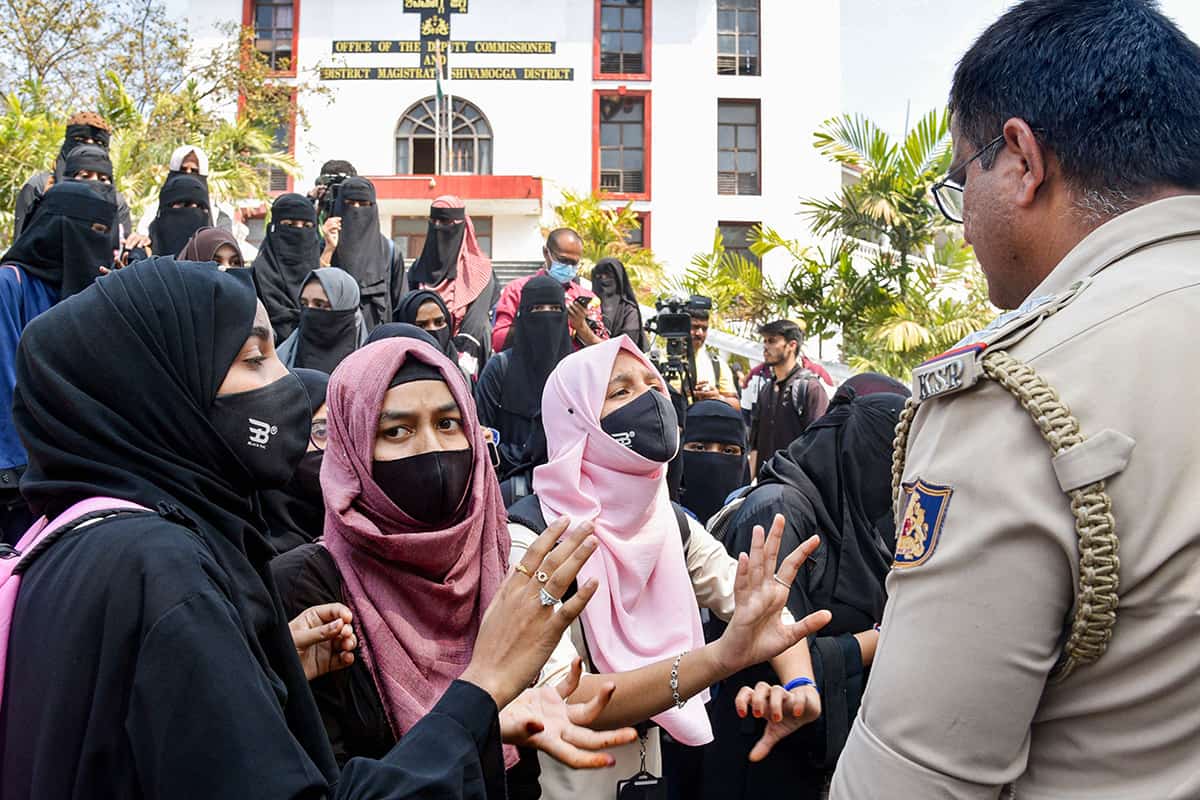
Even a year after the hijab debate, Muslim girls and women still experience harassment, according to a report produced by the People’s Union for Civil Liberties – Karnataka (PUCL-K).
In order to conduct interviews with students, teachers, and district officials, a PUCL-K team travelled to Raichur, Udupi, Hassan, Shivamogga, and Dakshina Kannada in the state.
According to the article “Closing the Gates of Education: Violations of Rights of Muslim Women Students,” many students have been forced to transfer from government to minority colleges because they claim they continue to experience harassment from college administrators.
“Students from marginalised communities, religious minorities, and Adivasis have repeatedly shared their experiences of discrimination in classrooms and how it adversely affects their self-confidence, and inhibits their aspirations for higher studies and sense of freedom. A divided and discriminatory educational space directly galvanises the establishment of a further divided society,” the report stated.
The report said that the judgment by the Karnataka High Court “did not include, in its ambit, a directive to any educational institution to impose a hijab ban with immediate effect.”
It further said that as the judgment and the interim order came at the time of end-of-year examinations, it had far-reaching consequences.
“Despite there being no compulsion or directive to impose a ban, educational institutions across Karnataka, at one stroke, prohibited the hijab. With complete disregard to protocols and due process and the rights of Muslim women students, schools, PU colleges and degree colleges imposed the sweeping ban,” the report stated.
The report further advised the Department of Collegiate Education and Department of Public Instruction to issue a directive clarifying that the Karnataka High Court judgement does not mandate a ban to all schools and colleges in order to prevent the erroneous imposition of an all-encompassing hijab ban in educational institutions.
“Based on the documentation of all testimonies, the team analysed the testimonies and identified the fundamental rights of students that were violated. The team also observed that the testimonies of the district administration, college authorities and police revealed how they violated the Constitutional mandate of their offices,” the report stated.
“I left my college and searched for other colleges that allowed girls to wear hijab. There was free education in government colleges but in my new college, the travel expense is high. I wanted to pursue MSc, which is not possible now. It feels that my dreams are now shattered,” a student who was interviewed said.
The report further stated that in rural Udupi, a student said that since there was a sudden change in the attitude of their neighbours and friends and many Muslim women sought support from within their community
“They said they wanted to punish and kill us. Many students come and pick fights without reason. We wrote to the principal, requesting intervention, but the principal refused,” the report quoted students.



